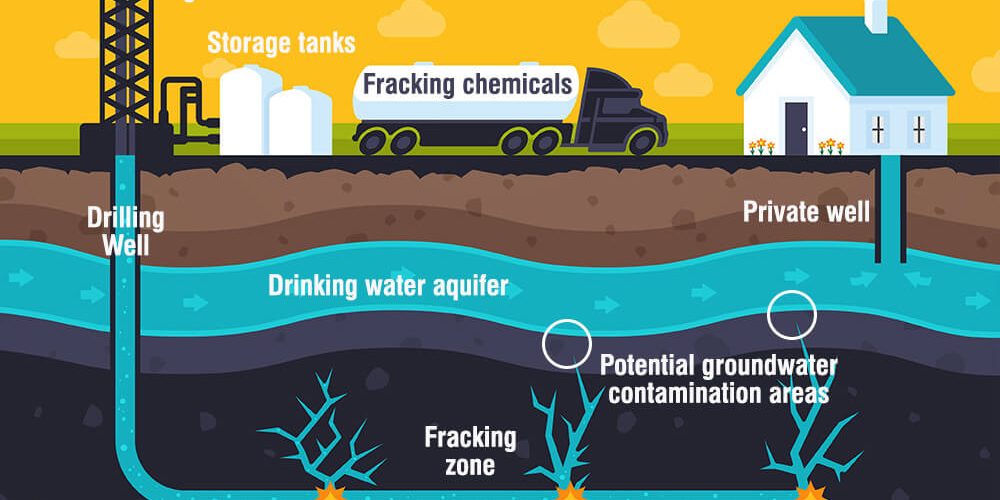What about fracking?
Lately I have heard in various media and by different people the controversy that has been generated for a few years due to the technique of extraction of gas and oil called "fracking". I did not know what it was about and why it generated so much controversy, so I gave myself the task of investigating what this new method consisted of and briefly shared the conclusions.
Hydraulic fracturing (fracking)
Gas and oil are highly valued resources at present, every day are present in the life of a large part of the population, this represents a big business for large corporations. That is why "fracking" is developed.
It consists of drilling a vertical well until reaching the formation containing gas or oil. Afterwards, a series of horizontal perforations are made in the shale (pores of low permeable rock formations containing gas and oil). Through these horizontal wells, the rock fractures with the injection of a mixture of water, sand and chemical substances at high pressure that forces the flow and exit of the hydrocarbons from the pores. But this flow decreases very soon, which is why it is necessary to drill new wells to maintain the production of the deposits. For this reason, hydraulic fracturing occupies large tracts of land.

Socio-environmental problems
Excessive use of water: The fracturing of a single well requires between 9 and 29 million liters of water.
Contamination of water sources: In the United States there are more than 1,000 documented cases of contamination of water sources related to the use of hydraulic fracturing. 750 different types of chemical products have been identified in the analyzed fracturing fluids, including highly toxic substances such as methanol, benzene, toluene, ethylbenzene and xylene. In addition, the wastewater known as return water not only contains the chemicals and sand that were originally introduced, but also heavy metals, hydrocarbons and even radioactive materials, such as radon, found in the subsoil.
Emission of gases and their contribution to global warming: 90% of the emissions in the process of obtaining the gas is methane (CH4), although sulfur dioxide (SO2), nitrogen oxide (NO) and volatile organic compounds are also emitted. Although the burning of natural gas emits less carbon dioxide (CO2) than other hydrocarbons, the complete process of its exploitation contributes to a greater extent to the acceleration of climate change due to the methane leaks produced during its extraction. These emissions can reach 8% of the total production of a well, that is, 30% more than in conventional gas projects. Methane is a greenhouse gas with a warming potential 86 times higher than CO2 in the short term, so in 20 years the impact of shale gas extraction on climate change can exceed 20% of coal .
Other affectations: Due to the environmental deterioration caused, the exploitation of shale gas is incompatible with other economic activities such as livestock, agriculture and tourism. To this is added the deterioration of the road infrastructure due to the impact of the 250 daily trips per well of large tonnage trucks. All this affects the quality of life, health and tranquility of the populations.
Sources: http://argentinasinfracking.org/fracking/ https://www.mrafundazioa.eus/es/articulos/consecuencias-del-fracking-en-el-medio-ambiente-y-en-la-salud
Very nice article you have there! But do not forget to cite your sources and credit your images when necessary
Thank you very much geopolis, I will not forget it!